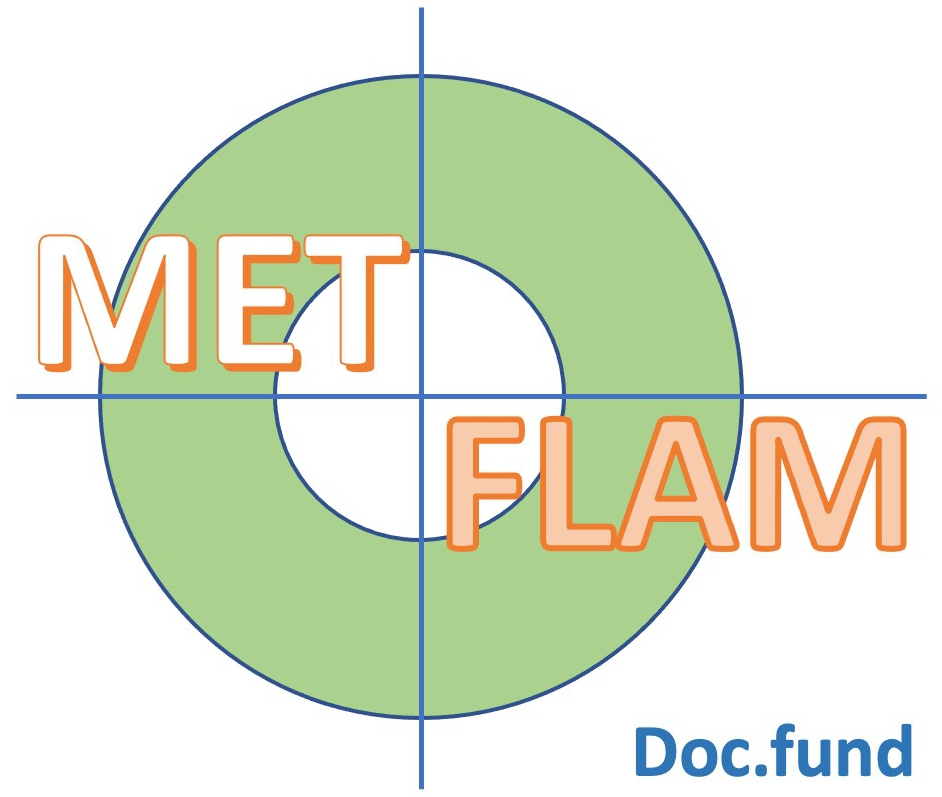
met-flam.at
Faculty ⏩


The MET-FLAM Faculty
The MET-FLAM faculty impresses with the following strengths: (i) increased thematic coherence in a well-defined, highly relevant area of biomedical research to foster scientific excellence; (ii) advanced clinical relevance with 9 faculty members out of 17 having an MD background; (iii) optimal gender balance with 8 female and 9 male PIs; (iv) and sustainable development of the program by including 4 junior faculty members as PIs, who, despite being at an early stage in their career, have already proven their excellent potential in student supervision and research.
Another key asset is the already established collaborative network, as illustrated by extensive joint publications. Moreover, the consortium
has in total raised more than
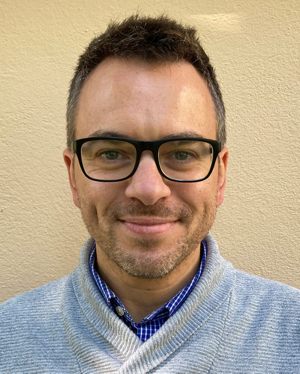
|
Stefano ANGIARI
is an immunologist with longstanding expertise in inflammation, autoimmunity, and immunometabolism. During his research career, he discovered key molecular pathways controlling lymphocyte activation in secondary lymphoid organs and leukocyte trafficking under homeostatic and inflammatory conditions. Recently, he has identified essential players involved in the metabolic switch that sustains |

|
Kathrin ELLER
is a nephrologist with a strong research focus on immune regulations in kidney diseases such as glomerulonephritis, diabetic nephropathy and transplantation. She has characterized the migration of |
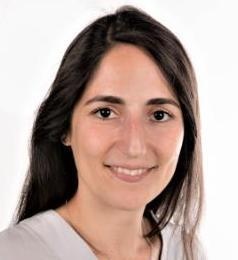
|
Aitak FARZI
is a neuropharmacologist with expertise on inter-organ communication pathways along the gut–brain axis and their impact on brain function and behavior. She has characterized the effects of diet-induced obesity on intestinal microbiome composition, the interaction with endocrine factors, and the consequences on brain function and behavior. Furthermore, she has studied the impact of activation of various innate immune pattern recognition receptors (including NOD-like receptors) by gut-derived bacterial cell wall components on brain function and behavior. Within MET-FLAM, she closely collaborates with Kargl (flow cytometry), Kratky (metabolic phenotyping), and Angiari (Nod signaling). |
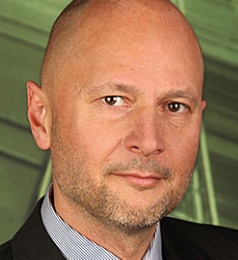
|
Ákos HEINEMANN
is an established immunopharmacologist focusing on the regulation of leukocyte trafficking as a fundamental principle of tissue inflammation, particularly in the lung. He has characterized novel mediators and metabolic pathways that regulate the barrier function of the endothelium and its interaction with immune cells, and elucidated their therapeutic potential in various disease models in the lung. He is coordinator of the doctoral programs MOLMED and former speaker of the DK-MOLIN. Within MET-FLAM, he closely collaborates with Sturm (mouse models and lung function testing), Kratky (metabolic phenotyping), and Angiari (SUCNR1 signaling). |
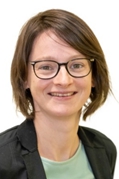
|
Julia KARGL
Her primary research interests are immunology and pharmacology, an interdisciplinary approach that combines basic and translational research. She has established a platform to comprehensively profile the immune landscape in lung cancer and chronic obstructive pulmonary disease (COPD) and studied neutrophil and |
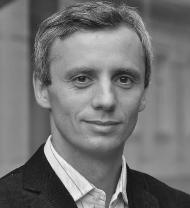
|
Michael KHALIL
is a physician scientist and neurologist with a strong focus on biomarkers in body fluids and imaging in neuroimmunological and neurodegenerative disorders. He has long-standing experience in cerebrospinal fluid diagnostics and clinical neurochemistry. He is currently focusing on the clinical significance of cerebrospinal fluid and blood biomarkers using ultra-high sensitive detection techniques in neuroimmunological and neurodegenerative disorders. Within MET-FLAM, he closely collaborates with Angiari (immunophenotyping and immune-metabolic profiling) and Stradner (immunophenotyping and immunosenescence). |
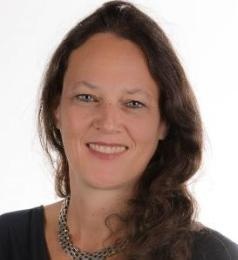
|
Dagmar KRATKY
is a biochemist and molecular biologist with expertise in lipid and energy metabolism of mutant mouse models. Her laboratory focuses on the role of cytosolic and lysosomal lipases in various cells and organs utilizing mutant mouse models with loss or overexpression of these enzymes. The group studies the impact of lipases on lipid and energy metabolism to understand the molecular mechanisms that cause abnormalities in lipid metabolism associated with the development of chronic inflammatory disorders. She is coordinator of the FWF-funded SFB Lipid Hydrolysis and former deputy speaker of the DK-MCD. Within MET-FLAM, she closely collaborates with Kargl and Angiari (immune cells and flow cytometry), Marsche (anti-inflammatory ativity of HDL), and Stadlbauer-Köllner (microbiome). |

|
Grażyna KWAPISZEWSKA
is a molecular biologist with a strong research focus on the complex processes underlying vascular and parenchymal remodeling in chronic lung diseases (CLD). Recently, she has characterized a specialized extracellular matrix (ECM), the basal membrane and its products (matrikines), in different forms of CLD and its role in the underlying structural cells. Currently, she is investigating the interaction between ECM, immune and structural cells. She is speaker of the doc.fund RESPImmun. Within MET-FLAM, she closely collaborates with kratky (metabolic phenotyping), Heinemann (immune cell isolation), Eller (immune-structural cell cross-talk), and Angiari (immunometabolism). |
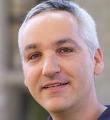
|
Gunther MARSCHE
is a biochemist and pharmacologist. His main research interest is to understand the relationships between pathophysiological processes that affect the molecular composition and function of high-density lipoproteins (HDL). This lipoprotein not only mediates reverse cholesterol transport, but also interacts with immune and endothelial cells, supports the clearance of bacterial toxins, and strengthens the endothelial barrier through antioxidant / inflammatory activities. He identified disease-specific changes in HDL composition that profoundly affect HDL functionality. Within MET-FLAM, he closely collaborates with Heinemann (immune cell effector responses), Sturm and Kargl (animal models), and Wadsack (endothelial cell functions). |
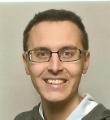
|
Florian REICHMANN
is a neuropharmacologist focusing on psychoneuroimmunology. In his work, he uses mouse and zebrafish models of inflammatory bowel disease and has characterized the complex communication pathways between the gut (microbiome, host cells, immune cells, microbial metabolites) and the brain relevant for neurobiology and pathological behavioral changes. Within MET-FLAM, he closely collaborates with Heinemann (macrophage and leukocyte cell functions), kratky (metabolic phenotyping of mice), and Kargl (phenotyping of microglia and CNS invading immune cells). |
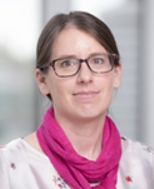
|
Susanne SATTLER
is cardioimmunologist interested in the crosstalk between the heart and the immune system in both systemic inflammatory disease as well as after cardiac injury and during the development of heart failure. Her scientific contributions to date include significant evidence supporting the autoimmune nature of heart failure. To the present consortium she will contribute her expertise on the role of dendritic cells and antigen presentation pathways in inducing and maintaining anti-heart autoreactivity and its role in cardiac remodeling during obesity. She is also experienced in undergraduate and graduate student supervision due to her ongoing role at the National Heart and Lung Institute within Imperial College London, UK. Within MET-FLAM, she will closely collaborate with Angiari and Stradner ( |
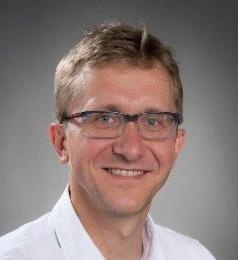
|
Simon SEDEJ
is a physiologist with profound expertise in cardiac aging and pathogenic mechanisms of heart failure with preserved ejection fraction (HfpEF). He focuses on autophagy activation by caloric restriction mimetics, like NAD+ precursors, as a potentially effective strategy to treat HfpEF in patients. He is coordinating the ERA-CVD network Metabolic Therapy for Managing Diastolic Heart Failure. Within MET-FLAM, he works closely together with Kargl (FACS-based immune profiling), kratky (endothelial dysfunction and microvascular inflammation), and Kwapiszewska (macrophage–cardiomyocyte crosstalk) to improve the immunometabolic aspects of HfpEF induced by the metabolic syndrome in a clinically-relevant animal model. |
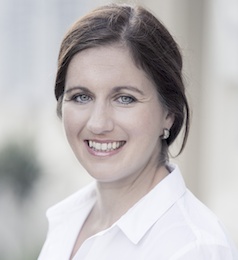
|
Vanessa STADLBAUER-KÖLLNER
is a physician scientist with a strong interest in the gut microbiome and innate immunology. She described neutrophil dysfunction in liver cirrhosis and linked it to gut microbiome dysbiosis. Her work focuses both on understanding how microbiome dysbiosis leads to immune dysfunction and clinical complications, and on discovering clinically useful biomarkers and therapeutic targets. She is deputy speaker of the Research Field ‘Sustainable Health Research’ at the MUG and leads the area Microbiome Modulation for Precision Medicine in the COMET center CBmed. Within MET-FLAM, she closely collaborates with Farzi (animal models), Marsche (lipoprotein metabolism), and Kargl (adaptive immunity). |
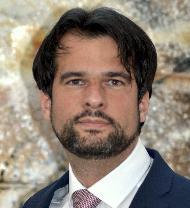
|
Martin STRADNER
is a physician scientist working on T cells in autoimmune disease. He focuses on the aspects of |
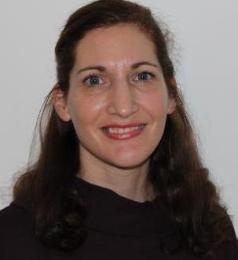
|
Eva STURM
is an immunopharmacologist with a special focus on the pathophysiology of inflammatory lung diseases such as asthma. Using a translational approach combining clinical and experimental research, she has identified several novel therapeutic targets to alleviate inflammatory processes in the lung. Within MET-FLAM, she closely collaborates with Kargl (multi-color flow cytometry and cell sorting), Heinemann (leukocyte functional assays) and Angiari (cell signaling assays). |

|
Christian WADSACK,
a biochemist by training, focuses his research on understanding the role of materno-to-fetal transport mechanisms and placental function in common and inflammatory conditions of pregnancy such as obesity and preeclampsia. In particular, he is interested how the metabolically active placenta transmits information to the fetus, |
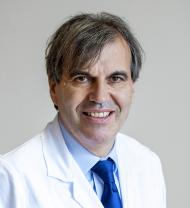
|
Peter WOLF
is a dermatologist with a strong research focus on the effects of UV radiation on the skin and the immune system. The work of his research group has unraveled the molecular mechanism of action of photo(chemo)therapy in diseases such as psoriasis and cutaneous |